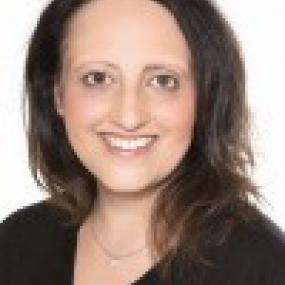Neurocritical Care – why I love what I do and succession planning!

Dr Manni Waraich is a Neurointensivist and Neuroanaesthetist based in London. She is a member of the FICM Women in Intensive Care Medicine Subcommittee and the lead for the WICM Emerging Leaders programme.
After two amazing years at Southampton Neuro ICU and 50,000 miles on the clock, I am moving back to London to be closer to my girls. Thinking about succession planning for my post has allowed me to enthuse to the Wessex ICM trainees about how rewarding my job has been here. So why should they consider applying for my job?
I put all my eggs in one basket in 2016 when I was looking for a consultant post. I could commute (one hour each way against the traffic) to about 6 out of the 31 neuro ICUs. Luckily a neuro ICU job came up just as I CCT’ed.
Neuro ICU offers the best of both worlds – a small unit or pod of beds in a large teaching hospital. With a small unit comes the District General Hospital (DGH) advantages of knowing all the neurosurgeons, neurologists, neuroradiologists and neuro theatre staff but also the ability to call for some cardiothoracic surgical advice for the neurotruama patient at any time, day or night.
There are 11 of us that cover the neuro ICU, with day and night consultant on calls including the weekends. I had a gentle introduction to my on calls, so that after a month of just day time shifts, my night shifts for the next couple of months were supported by “phone a friend”. One of my colleagues likened his first year as a neuro ICU consultant at Southampton to a post CCT fellowship except with a consultant salary. That safety net of having someone else to look at a CT or MRI scan before there is de-escalation of raised ICP management has been reassuring many a time.
Southampton Major Trauma Centre (MTC) covers a population of 3.7 million people who are also served by 7 DGHs. The majority of the ICU consultants within the Wessex region were trained at Southampton so they know the neuro ICU team well. That allows for a mutually beneficial relationship. They are instrumental in repatriation of the neuro patients and they know they can call us for advice on all things neuro. But I still can’t get used to those consultants who examined me for the FFICM, phoning up for a neuro opinion!
My job plan is a 50:50 neuro ICU/ neuroanaesthetics. I can extend my relationship from the ICU to theatres, changing from my grey ICU scrubs to the theatre navy ones. The grey scrubs can however provide encouragement and guidance in the middle of the night to both the anaesthetic and neurosurgical registrars in theatres with a neurotruama patient.
When I read Jack Parry-Jones’s editorial in JICS recently about why do we do critical care (Where is the green, green grass of home?) , it resonated with me. Neurocritical care allows me to be part of a specialist multidisciplinary team working with passionate colleagues. I am involved in teaching including a MDT neurosimulation day where hopefully I am passing on some pearls of neurocritical care wisdom to trainees. More importantly I am privileged to be part of a team that helps patients and families through difficult times where neurological outcomes are uncertain or ensuring a dignified death in those with devastating head injuries whilst supporting the loved ones they leave behind.
If you are interested in how I became a neurointensivist, I wrote an article recently for the NACCSGBI trainee handbook which also includes articles by trainees who are interested in all things neuro. My job at Southampton should be advertised soon, I hope that another passionate intensivist joins the amazing team who have been instrumental in making me the consultant that I am today. If you are still early in your training then I hope you enjoy your neuro ICU placements. What you learn during that placement will come in very useful in your ICM consultant career.
I start my new job at Queen Square in May. I will be sad to leave Southampton neuro ICU, though I have been told that the neurocritical care world is a small place, especially since my present clinical lead is going to be the next NACCSGBI President!
